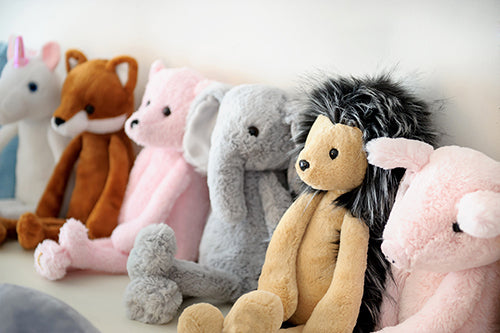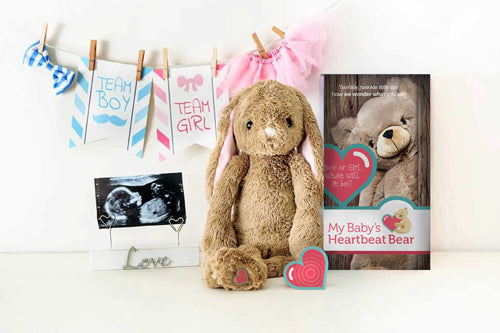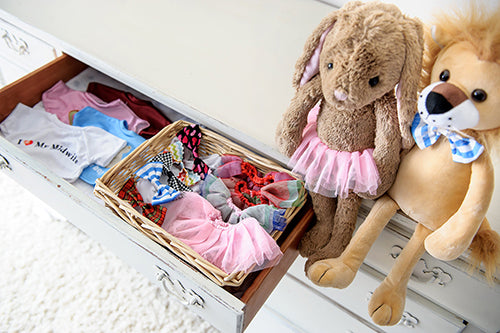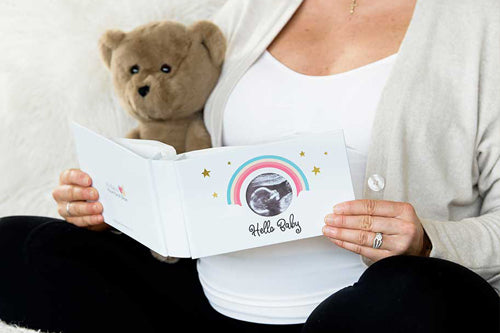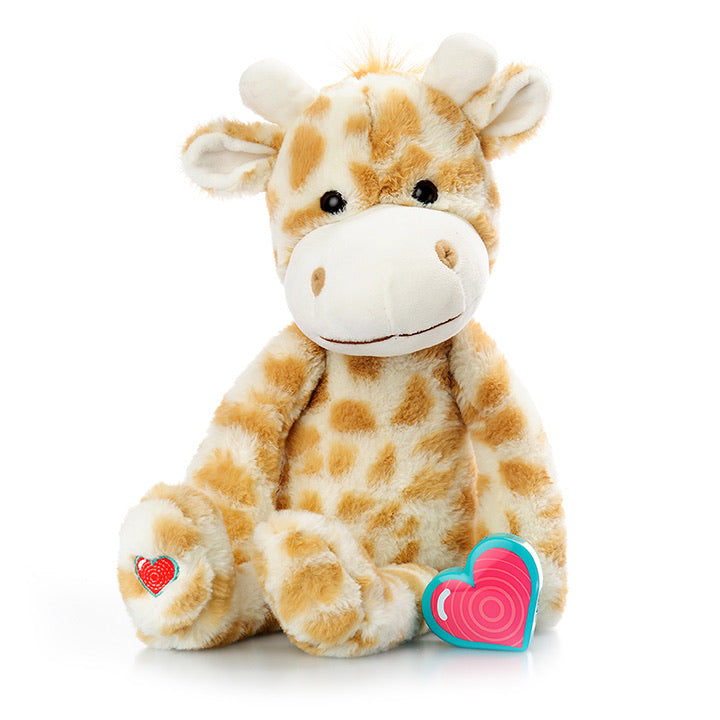Why We Co-Sleep and Bed-Share With Our Baby

I will start this article with the fact that there is a correct way to bed-share. There are do’s and dont's and so many things to learn. However, after making the decision to keep baby in bed with you, don’t waiver – trust your decision and don’t let others make you feel bad for it.
In our house, our newborns always sleep with us. They do so until they are old enough to not want to. Our first baby slept with us until she was 2.5 years old and her baby brother was about 8 months old. Together, they slept on a mattress on the floor and crawled into our bed if needed. Our third baby is now 4.5 years old and still crawls into bed with us (after he starts the night in his own room). Our fourth is 2.5 years old and starts with the 4 year old before coming in bed with us. Baby number five sleeps right next to me (and is on my boob all night).
Most people think we are crazy over here. People assume we never have sex (UMMMM hello? We have FIVE babies. I promise bed-sharing does not interfere with sex). I’ve even been told that our oldest daughter will become a 'slut' because she’ll be so used to having someone sleeping next to her, that she’ll fill her bed with any man. I.AM.NOT.KIDDING. Let’s just say I have yet to ever speak to that person again.
This is what works for our family. It was not our original plan, but bringing home this tiny 6 lbs of joy it was just too hard not to hold her all night long. That was the moment I started my research. If my (and my huband’s) instincts said she belonged in our bed, how could we be wrong? Come to find out, we weren’t. We were, and are, so right.
Not that I judge anyone who’s not sharing their bed. But I will strongly suggest that you share your room, as the studies related to SIDS are glaringly obvious that this reduces the risk drastically.

Bed-Sharing vs. Co-Sleeping
Co-sleeping basically umbrellas bed-sharing, but you can co-sleep without your baby being in your actual bed. The definition of co-sleeping is “sharing a sleep environment with your baby.” This may mean sharing your bed safely or having a sidecar arrangement next to the bed, or even having a crib in the room that is within arm’s reach. It is the cultural norm for 90% of the world’s population.
Bed-Sharing should NOT occur in unsafe environments, such as couches and waterbeds, or if parents are intoxicated, take sleep medications, or are heavy smokers. These types of arrangements are often included in studies about co-sleeping dangers, which dramatically skews the results.
Also, bed-sharing means not putting a newborn in a bed with an adult other than the mother, who is biologically hardwired for sharing sleep with an infant (research indicates that most dads change their sleep patterns over the course of a few months to become more aware as well). While each single bed-sharing death is tragic, these deaths should not be related to all who bed-share. Just as the three hundred thousand plus deaths or more of babies in cribs do not mean that crib sleeping is deadly and should be eliminated. Just as unsafe cribs and unsafe ways to use cribs can be eliminated so, too, can parents be educated to minimize bed-sharing risks.
Top 5 Reasons We Bed-Share
(Without an Age Limit)
Safety and Peace of Mind
-
Health: Studies show that a baby sleeping within arms’ reach of another person significantly improves his heart rate, heart rhythm and blood pressure.
- Temperature Regulation: The mother’s body actual acts as a thermostat and heats or cools to meet baby’s need, helping to prevent overheating (common in cribs).
- Breathing Regulation: A bed-sharing infant’s breathing is more regular, as it tunes into mother’s breathing patterns.
- Respiratory Facilitation: The carbon dioxide exhaled by the mother triggers the infant to breathe.
- Safety: The highest rates of bed-sharing worldwide occur alongside the lowest rates of infant mortality, including Sudden Infant Death Syndrome (SIDS) rates. (Infants in bed-sharing environments, like babies in cribs, can still die of SIDS, it is just far more rare.)
- Everyone I love is within one space: My Mama Bear Instincts can sleep well.
Happiness and Comfort
- Happier Bedtime: Knowing he will not be alone all night in a big room, but instead have the love and comfort next to him, will creative a positive connection to bedtime.
- Happier Morning: There is absolutely nothing sweeter than waking up to baby snuggles! Babies (and toddlers) that bed-share tend to sleep in later than those in their own room or bed. I’ll take every last minute of that sleep!
-
Comfort: Hearing a parent’s heart beat helps infants fall asleep faster and calmer. Feeling the nearness of this parent throughout the night comforts baby and keeps his sleep more peaceful. I can also argue that the same goes for the parents! I sleep so much better knowing my baby is right next to me.
- Anxiety: Studies also show just how much less anxiety infants experience when they are in bed with their mother. Again, I can argue that the mother feels the same way!
Bonding
-
Family Bonding: Sleeping together helps establish a strong family foundation.
-
Sibling Bonding: Not everyone will agree here, but our family feels as though the relationship between siblings should be strongly developed and well-rooted early in life. By bed-sharing, we feel as though our children are happy and truly love being near each other.
-
Daddy Bonding: Some fathers feel as though the newborn stage is hard to bond with baby. By sharing a bed, daddy gets plenty of snuggle time!
- Grown-Up Bonding: A happy, healthy marriage/relationship is often hard to find after babies are introduced to the mix. After polling many bed-sharing families, I feel very confident in saying that those of us sharing a bed with little ones have the BEST SEX LIVES. Bed-sharing forces you to get creative. The entire house becomes a place to adventure out in to. Seeing your spouse snuggle a baby can be quite the turn on…. At least this is how it works for us!
Creating Real Independence
As John Holt put it so eloquently, having feelings of love and safety in early life, far from "spoiling" a child, is like "money in the bank": a fund of trust, self-esteem and inner security which the child can draw on throughout life's challenges.- Constant love and support harbors a self-confidence and independence. This love and support should not end as the sun goes down, leaving a child to comfort and support themselves over night. Allowing your infant to feel this security throughout baby-hood and toddlerhood, until he is ready to sleep independently, will encourage a positive outlook, happier moments, high self-confidence, and a higher sense of independence.
Breastfeeding Relationship and Laziness
-
Breastfeeding: Nursing on demand is much easier to do when you can “dream feed” throughout the night. That moment when baby begins to move in his sleep, but isn’t awake yet. You have the opportunity to nurse him without fully being awake yourself (and definitely without getting out of bed!).
- Longer Breastfeeding Relationship: Bed-sharing is linked to longer nursing relationships, and happier ones!
- Longer Breastfeeding Relationship: Bed-sharing is linked to longer nursing relationships, and happier ones!
- Laziness: I won’t lie, it is damn nice to not get out of bed at all. There is no walking to another room, sitting in a rocker, or even walking across the room to a crib. I love my sleep, and so do my babies. This is the most natural way for us to sleep.
Did You Know?
- Evidence suggests that infant-parent co-sleeping represents the species-wide pattern of sleep in which human infant physiology evolved.
- In Japan where co-sleeping and breastfeeding (in the absence of maternal smoking) is the cultural norm, rates of the sudden infant death syndrome are the lowest in the world. For breastfeeding mothers, bed-sharing makes breastfeeding much easier to manage and practically doubles the amount of breastfeeding sessions while permitting both mothers and infants to spend more time asleep. The increased exposure to mother’s antibodies which comes with more frequent nighttime breastfeeding can potentially, per any given infant, reduce infant illness. And because co-sleeping in the form of bed-sharing makes breastfeeding easier for mothers, it encourages them to breastfeed for a greater number of months, according to Helen Ball’s studies at the University of Durham, therein potentially reducing the mother’s chances of breast cancer.
- Human infants are born the most neurologically immature primate of all, with only 25% of their brain volume. This represents a uniquely human characteristic that could only develop biologically alongside mother’s continuous contact and proximity—as mother’s body proves still to be the only environment to which the infant is truly adapted, for which even modern western technology has yet to produce a substitute.
Resources: http://neuroanthropology.net/2008/12/21/cosleeping-and-biological-imperatives-why-human-babies-do-not-and-should-not-sleep-alone/ http://europepmc.org/abstract/med/8506461 http://www.sciencedirect.com/science/article/pii/S1526054205000230
Featured Articles
Jaundice: When Your Baby Looks Yellow
5 New Year's Desserts to Make With Kids




